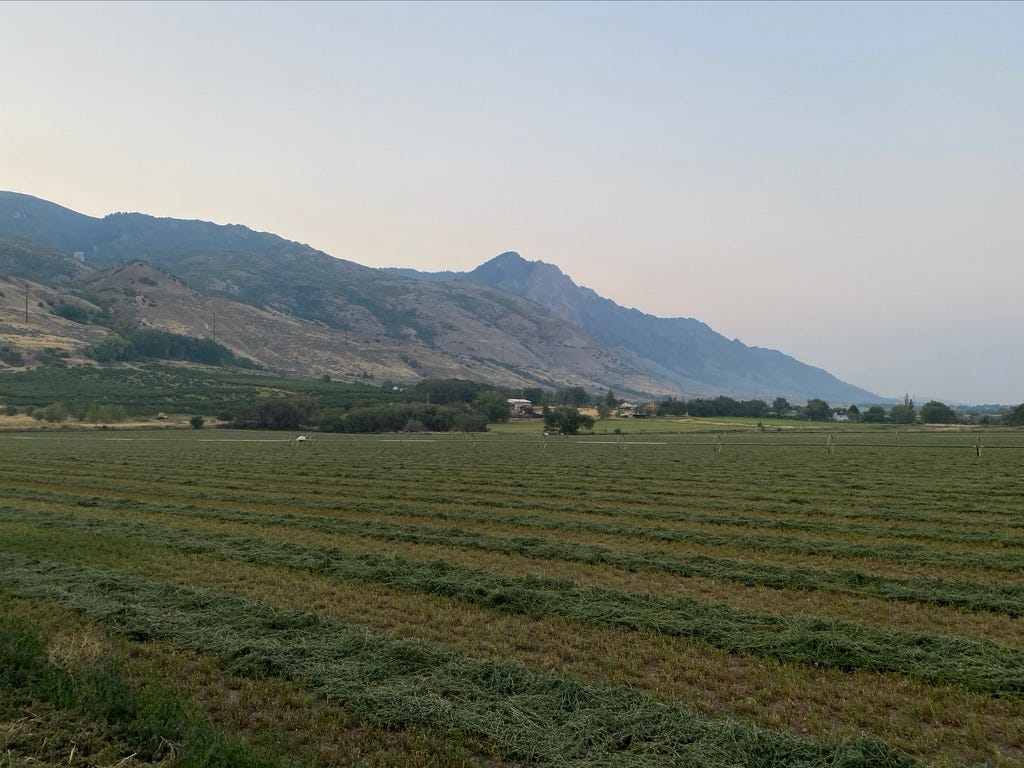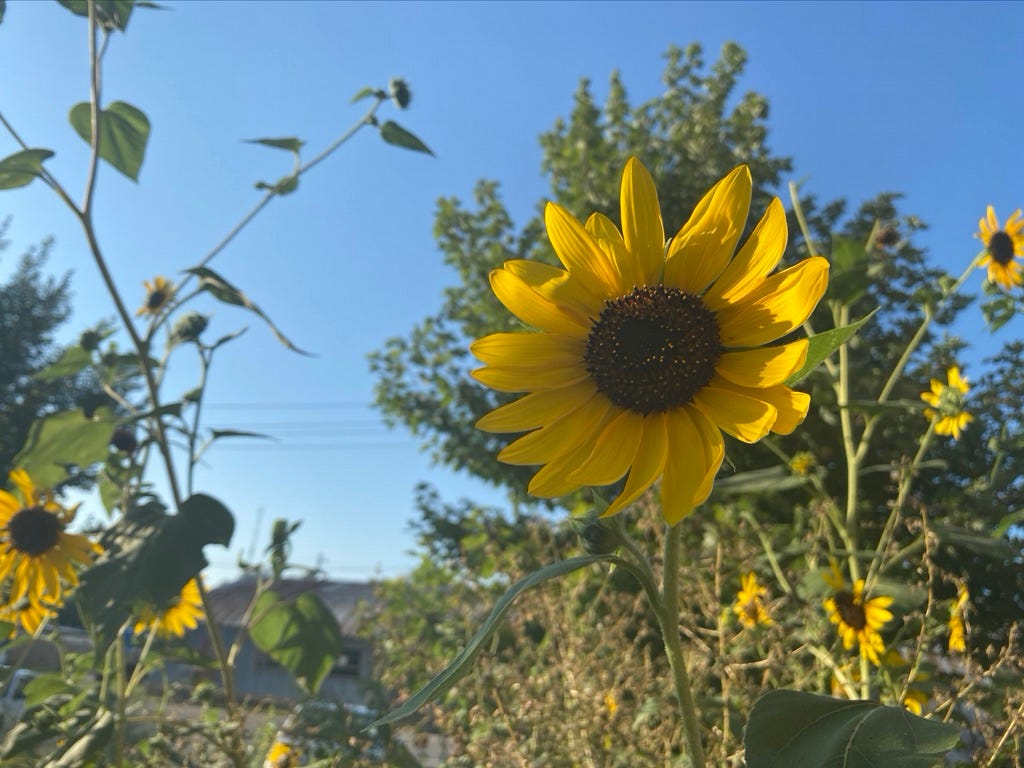Swear You'll Save The World When I Lose My Grip
With his latest album, Weathervanes, Jason Isbell secures his place as the poet laureate of working class tragedy
I know I’ve written about Jason Isbell a bunch of times in this newsletter. This review of his newest album, Weathervanes, wasn’t supposed to run here: it was pitched to and accepted by a magazine, but I eventually killed it voluntarily (a career first) due to some irreconcilable creative/editorial differences. Just the nature of the beast. The album in question has been out almost two months now, but I stand by the writing and I hope you still find it worth your time.
In 1974, historian and radio broadcaster Studs Terkel released Working, a collection of interviews with Americans working all sorts of jobs. The introduction begins:
This book, being about work, is, by its very nature, about violence—to the spirit as well as to the body.
So it is with any work of art about, well, work: it will be about violence. Weathervanes, the newest album from Jason Isbell and the 400 Unit, is no exception.
Like his friend and mentor, the late John Prine, Isbell has always had a keen eye for the lives of everyday people. And if there’s anything that unites most everyday people, it’s that they have to sell their time and labor in order to get by, which is to say that they exist at the mercy of forces they cannot control. On Weathervanes, Isbell tells story after story of people buffeted, bruised, and torn apart by those forces. “The night was young once, we were the wild ones/Before we had to pay attention to the violence,” Isbell howls on “Death Wish,” one of the album’s best tracks. That violence runs rampant through “King of Oklahoma,” another standout tune, where an accident on the job leads to a broken body, a pill addiction, and the bitter end of a relationship. It’s in “Volunteer,” too, as hard-working parents “propped up on pain pills and pride” die young and leave their child to make his own way in the world.
If there’s a poet laureate of American working class tragedy, it’s Isbell. The subjects of Weathervanes don’t just go to work. They get rejected by strangers in bars, cry in laundromats, die in prison, seek hasty abortions for teen pregnancies, hit the road looking for jobs or answers or absolution. These songs paint pictures that are as messy and complicated as real life is.
This ability to tell authentic stories of working people has been evident since Isbell’s early days with Drive-By Truckers. Take “Outfit,” inspired by the singer’s father and released on 2003’s Decoration Day, which begins:
You wanna grow up to paint houses like me A trailer in my yard 'til you're twenty-three You wanna feel old after forty-two years Keep dropping the hammer and grinding the gears
During Isbell’s time heading The 400 Unit, as he’s transformed from southern rock’s bad boy folk hero into a bona fide megastar, he hasn’t lost that ability to see life through the eyes of the working stiff. On the title track of 2015’s Something More Than Free, he sings from the perspective of a man so ground down by manual labor that he contemplates death with a sense of relief:
No more holes to fill and no more rocks to break And no more loading boxes onto trucks for someone else’s sake 'Cause the hammer needs a nail And the poor man's up for sale Guess I'm doin' what I'm on this earth to do
That the poor man is up for sale, and that this sale is inherently a violent one, is a foundational theme in Isbell’s oeuvre. Bodies and dreams are crushed, family farms are bulldozed to make way for Wal-Mart parking lots, coal mining and factory jobs disappear and leave misery in their wake. The ghosts of America’s sins, past and present, haunt his discography.
In Running With Our Eyes Closed, Sam Jones’ recent documentary about the making of Reunions, Isbell sheds light on what makes him such an effective messenger for these everyday struggles:
There’s only one story. They say three, in your creative writing classes. But there’s only one, really, and that’s “Will you listen to what my life is like? You know, and let’s compare.”
Isbell has long been willing, in public and in song, to ask his audience to listen to what his life is like: his own journey of addiction and recovery, the end of his first marriage and the blossoming of his second, his struggle to relate to and forgive his parents for their mistakes, his struggle to avoid repeating them with his own daughter. But what makes Isbell such a transcendent songwriter is his understanding that within these individual experiences is something universal. Every album is full of pieces of his own life, and seemingly the lives of everyone he’s ever met. For a commercially successful musician to keep such a clear eye trained on the real world is refreshing, bordering on miraculous.
None of it seems cheesy or heavy-handed, and the poetic lyrics are accompanied by virtuosic, heart-thumping, and heartbreaking instrumentals from 400 Unit bandmates Derry deBorja, Chad Gamble, Jimbo Hart, Sadler Vaden, and Amanda Shires (to whom Isbell is married). Weathervanes isn’t just moving; it’s fun, especially if your idea of a good time includes hurting your own feelings on purpose. The riffs on “Save the World” are so heavy you almost forget you’re listening to a song about parenting in the wake of the Uvalde school shooting. “If You Insist” is so rhythmic and charming that it’s easy to overlook the fact that you probably wouldn’t want to talk to that guy in the bar, either.
The music itself is undeniably exceptional. But what ultimately makes Isbell’s work, new and old, so special is that it recognizes the same truth that Martin Hägglund elucidated in a 2019 Jacobin interview: that life’s finitude is what makes it precious, and that precious gift is wasted when one is forced to buy and sell it on other people’s terms just to survive. Take “If We Were Vampires,” from 2017’s The Nashville Sound:
If we were vampires and death was a joke We'd go out on the sidewalk and smoke And laugh at all the lovers and their plans I wouldn't feel the need to hold your hand Maybe time running out is a gift I'll work hard 'til the end of my shift To give you every second I can find And hope it isn't me who's left behind
Anyone who has ever loved so desperately as to be choked by the prospect of being parted in death can surely relate. To love anyone or anything so deeply is to want to give every moment possible to them. But working people’s days (and by extension their lives, for what are our lives if not the sum of our days) are not their own. It is this singular tragedy that animates the best songs on Weathervanes, both in recognition and in negation: in concluding that what makes life worth living at all are those moments when we can give ourselves over to whatever we choose. For all its drudgery and tragedy, Weathervanes also has love and passion, because real life has those, too. A young woman in an interracial relationship loses her family over it but finds a love “as simple as a weathervane.” A narrator whose relationship is on the rocks looks back at better times with a “strawberry woman” so dazzling she could catch the attention of people and prairie dogs alike. So it goes.
Weathervanes is a triumph, the rare album that captures real life in all its complexity, that captures the loneliness and alienation and pride of everyone forced to work too hard just to get by. “In the name of survival, we get used to this,” Isbell sings on “Miles.” Haven’t we all made such compromises? And isn’t it nice to find, within art, a signpost to help us better understand what pieces of ourselves we can identify in others? Such understanding is the cornerstone of solidarity. And in the end, that might be the best hope of working people everywhere.
Thanks, as always, for reading. I’ll talk to you next week.
-Chuck
PS - If you liked what you read here, why not subscribe and get this newsletter delivered to your inbox each week? It’s free and always will be, although there is a voluntary paid subscription option if you’d like to support Tabs Open that way.





We went and saw him here in Richmond last night, and it occurred to me this morning that I had been saving this piece of yours until... well, now, I guess.
This is really great, and it hits so many nails on the head w/r/t why and how Jason Isbell is so great. I've been trying to write an essay about my personal relationship with the song Speed Trap Town, and I keep coming up unsatisfied which I guess is a different matter, but you're right in that his gift is in seeing both our particularities and the ways in which they're all universal.
Early in the show, he noticed a little kid toward the front with a sign that said something like "This is my first concert," and he joked, "keep going to concerts. I promise they're not all this sad." Later on, my wife asked me if his music made me sad, as I've been known to cry along with a lot of it, and I had to think on that. It's really not sadness, but rather aliveness. He pulls out notes of what it's like to be here that a lot of folks just don't, like someone who brings out more flavor in a dish.
I also like how you put this: "if there’s anything that unites most everyday people, it’s that they have to sell their time and labor in order to get by, which is to say that they exist at the mercy of forces they cannot control."
To conclude: I'm up for reading all the Jason Isbell content you want to write!